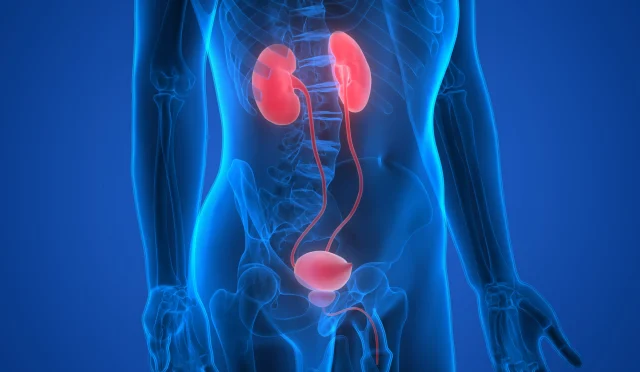Ice Bucket Challenge 2.0: The ALS Community’s Perspective
The return of the Ice Bucket Challenge 2.0 has ignited a wave of enthusiasm online, blending fun with a heartfelt mission.
Initially launched to spread awareness about ALS (amyotrophic lateral sclerosis), this reinvigorated trend now aims to shine a spotlight on mental health advocacy. By harnessing the immense power of social media trends, participants are not only taking the iconic icy plunge but are also rallying support for a cause that desperately needs attention. Fundraising for ALS received a significant boost in its first iteration, and the current challenge carries that momentum forward while raising awareness about mental well-being as well. As videos go viral, this movement represents a unique confluence of two crucial issues: promoting ALS awareness and underscoring the importance of mental health.
The Ice Bucket Challenge 2.0 serves as a refreshing revival of a social phenomenon originally designed to increase understanding and support for those affected by ALS. This latest iteration has broadened its reach by including a vital focus on mental wellness, responding to growing concerns within the community. What started as a lighthearted social media challenge has transformed into a dual-purpose initiative, connecting individuals through shared experiences while championing important causes. Engaging with both ALS awareness and mental health advocacy, this initiative acts as a catalyst for discussions around these often-overlooked topics. As participants continue to share their experiences online, the movement not only encourages donations but also fosters a greater understanding of the challenges faced by families affected by ALS and mental health issues.
The Impact of the Ice Bucket Challenge 2.0 on ALS Awareness
The return of the Ice Bucket Challenge 2.0 has reignited a crucial conversation about ALS awareness. Originally launched in 2014, the Ice Bucket Challenge successfully raised over $220 million for ALS research, bringing significant public attention to amyotrophic lateral sclerosis, a disease that often remains overshadowed by more prevalent conditions. The resurgence of this viral campaign is being leveraged by organizations dedicated to ALS advocacy, aiming not only to fund research but also to inform the public about the complexities and challenges faced by those living with this illness. By encouraging people to participate and share their own experiences with ALS, the challenge fosters a community of support that is vital for both the patients and their families.
As the Ice Bucket Challenge 2.0 emerges, it’s more than just a fundraising venture; it symbolizes a broader movement towards social media activism. Celebrities and influencers are once again taking part, amplifying its reach and effectiveness. The increased engagement seen across platforms like Instagram and TikTok highlights how social media trends can mobilize communities toward a common cause. Critics may argue about the dilution of the ALS focus with the incorporation of mental health, but it’s essential to recognize that both issues intersect deeply. Raising awareness for ALS while supporting mental health advocacy embodies the interconnected struggles many face.
Mental Health Advocacy: The New Frontier of Ice Bucket Challenge
The new iteration of the Ice Bucket Challenge emphasizes mental health advocacy, a timely and crucial topic that resonates with many individuals today. Initiatives like the one launched by the University of South Carolina’s MINDs club illustrate how social media can cultivate awareness for often stigmatized issues like mental health. The funding generated through this campaign, which surpassed initial targets, will benefit Active Minds, a nonprofit organization dedicated to promoting mental health on college campuses. As young people increasingly encounter mental health challenges, this particular movement serves to eliminate stigma and promote dialogue around these important issues.
Integrating mental health awareness into the Ice Bucket Challenge 2.0 is a strategic move that potentially broadens the reach of both causes. The emotional toll of conditions like ALS can significantly affect both patients and caregivers, highlighting the need for comprehensive support systems. Advocates argue this partnership can pave the way for enhanced collaborative efforts between ALS and mental health organizations, leading to more resources and assistance available to families grappling with these intertwined struggles. The hope is to create an environment where conversations flow freely, ensuring that no one feels isolated in their battles.
Navigating the Response: Community Perspectives on the Ice Bucket Challenge 2.0’s Return
Reactions within the ALS community to the Ice Bucket Challenge 2.0’s comeback are diverse, reflecting personal experiences and the underlying emotions tied to the disease. Some individuals express concern that diverting attention to mental health could detract from the urgent need for funds and awareness for ALS, a condition that remains underfunded and less recognized compared to more common illnesses. Voices like Allie Cruz highlight this apprehension, as those personally affected by ALS fear that their cause might become overshadowed in the fundraising narrative. While recognizing the importance of mental health, there’s a call for maintaining strong support mechanisms specifically for ALS initiatives.
Nonetheless, many in the community appreciate the resurgence of the challenge itself, regardless of the cause it currently serves. The true achievement, they argue, lies in the conversations and awareness being spread about ALS. It serves as a reminder that both mental health and ALS require societal attention and resources, and that the challenge can unify efforts in addressing both areas. Ultimately, the growing involvement from a broad spectrum of participants is a testament to the enduring legacy of the original Ice Bucket Challenge and its ability to foster community support, sparking hope and inspiration amidst ongoing challenges.
The Role of Social Media Trends in Fundraising for ALS
Social media trends play a pivotal role in modern fundraising efforts, and the Ice Bucket Challenge exemplifies this phenomenon. The idea of engaging in a viral activity, while simultaneously raising funds, demonstrates the innovative ways in which charities can mobilize support. With the resurgence of the Ice Bucket Challenge 2.0, organizations like the ALS Association are likely to leverage user-generated content to maximize fundraising potential. Engaging the public through social media creates a shared experience that can lead to increased donations, not just from the participants but also from those who are inspired to contribute in their own capacity.
In addition to financial donations, the challenge also serves to spread awareness on a scale that traditional fundraising techniques often cannot achieve. The sharing of videos and stories related to ALS allows the disease to reach a broader audience, encouraging people to educate themselves and participate in dialogues surrounding it. As the challenge evolves to include mental health advocacy, the potential for synergistic fundraising efforts grows. This creates an opportunity for both causes to benefit from the visibility and engagement of their respective audiences, ultimately strengthening the call for action against the challenges faced by individuals affected by ALS.
Creating Sustainable Change: Collaborations Between Causes
The Ice Bucket Challenge 2.0 prompts a reevaluation of how different health-related causes can work together for greater impact. The collaboration between the ALS community and mental health advocates exemplifies how shared goals can amplify outreach and fundraising. By addressing both areas simultaneously, participants can contribute to two vital causes with one action, encouraging a more holistic approach to health-related advocacy. Such partnerships could lay the groundwork for more integrated support systems that address both physical and mental health, acknowledging that one often directly impacts the other.
Moreover, this cross-collaboration sets a precedent for future fundraising initiatives across various causes. Nonprofits can learn from the Ice Bucket Challenge 2.0’s model, encouraging unique and interactive campaigns that leverage the power of social media. By recognizing the importance of unity in advocacy efforts, organizations can maximize their reach and create sustainable change within their respective fields. As the dialogue around health continues to evolve, embracing collaboration will be essential in tackling the multifaceted challenges that individuals face.
Final Thoughts on the Ice Bucket Challenge’s Legacy
The legacy of the Ice Bucket Challenge extends far beyond its viral success in 2014, and its revival for 2.0 offers a powerful platform for dialogue about ALS and mental health. For many, participating in the challenge represents an act of solidarity with those impacted by these conditions, whilst also raising crucial funding for ongoing research and support initiatives. The emotional stories and personal narratives shared through social media encapsulate the resilience of the ALS community, highlighting the positive outcomes that can emerge from collective action and awareness.
As we move forward, it’s essential to remember the driving force behind these initiatives: a shared commitment to making a difference in the lives of those affected by ALS and mental health issues. By continuing to participate, advocate, and educate, individuals can help ensure that the Ice Bucket Challenge remains a symbol of hope and change. The conversations sparked by its return are vital, reminding us that, in unity, we can cultivate a more informed and compassionate society.
Frequently Asked Questions
What is the Ice Bucket Challenge 2.0 and how does it relate to ALS awareness?
The Ice Bucket Challenge 2.0 is a revival of the original Ice Bucket Challenge, initiated to spread awareness for ALS (amyotrophic lateral sclerosis). This time, it also emphasizes mental health advocacy, aiming to raise funds and promote awareness for both causes. The challenge encourages participants to get doused with ice water while nominating others to do the same, helping to spark conversations around ALS and mental health.
How does the Ice Bucket Challenge 2.0 support fundraising for ALS?
The Ice Bucket Challenge 2.0 continues the legacy of the original challenge, which raised over $220 million for ALS research. The new iteration encourages participants to contribute to ALS organizations, ensuring that funds are directed towards urgent research and support services for individuals affected by ALS. This renewed effort helps remind the public about the ongoing need for ALS funding.
Can participating in the Ice Bucket Challenge 2.0 raise awareness for mental health alongside ALS?
Yes, the Ice Bucket Challenge 2.0 innovatively links ALS awareness with mental health advocacy. By participating, individuals can bring attention to the challenges faced by both communities, fostering discussions and helping to fund organizations like Active Minds that focus on mental health awareness.
Are celebrities participating in the Ice Bucket Challenge 2.0 and what impact does that have?
Yes, many celebrities have joined the Ice Bucket Challenge 2.0, significantly amplifying its reach on social media. Their involvement increases visibility and encourages participation from a wider audience, which is crucial for both ALS awareness and mental health advocacy. This kind of influence can lead to substantial fundraising opportunities.
How can the Ice Bucket Challenge 2.0 create conversations about ALS?
The resurgence of the Ice Bucket Challenge 2.0 is a significant conversation starter about ALS. By integrating the challenge with mental health topics, it not only maintains awareness of ALS but also connects it to broader discussions about mental health, thus engaging more individuals and promoting a united front for support and resources.
What are the concerns from the ALS community regarding the Ice Bucket Challenge 2.0?
Some members of the ALS community have expressed concerns that focusing too much on mental health may overshadow the urgent funding needs for ALS research. However, many also recognize that linking both causes can enhance overall support and awareness, potentially benefiting everyone affected by ALS.
How did the original Ice Bucket Challenge impact awareness for ALS and why is it significant today?
The original Ice Bucket Challenge in 2014 drastically increased global awareness about ALS, generating over 10 billion views and significant funding for research. Its significance today lies in its ability to reignite conversations about ALS while also addressing mental health, thus fostering a holistic approach to advocacy.
What role do social media trends play in the success of the Ice Bucket Challenge 2.0?
Social media trends play a crucial role in the success of the Ice Bucket Challenge 2.0 by providing a platform for widespread participation and engagement. The challenge’s viral nature on platforms like Instagram and TikTok allows for rapid dissemination of information about ALS and mental health, thus reaching diverse audiences and encouraging community involvement.
What does the future hold for the Ice Bucket Challenge and ALS awareness?
The future of the Ice Bucket Challenge and ALS awareness hinges on continued engagement through social media and community support. As the challenge evolves, it can keep raising funds and awareness, ensuring that both ALS and mental health issues remain in the public consciousness, fostering ongoing discussions and support.
| Key Points | Details |
|---|---|
| Ice Bucket Challenge 2.0 | The Ice Bucket Challenge has returned, focusing on new causes like mental health awareness. |
| Initial Success | Originally launched in 2014 to raise awareness for ALS and generated over $220 million. |
| Impact on Individuals | Participants like Allie Cruz shared their personal connections to ALS, illustrating how the challenge educated them. |
| New Cause | The new campaign aims to raise awareness about mental health, gaining immediate popularity. |
| Community Responses | Mixed reactions with some ALS advocates expressing concern about diverting attention from ALS to mental health. |
| Support from ALS Organizations | ALS Association acknowledges the need for mental health awareness while emphasizing the ongoing need for ALS research. |
| Ongoing Dialogue | The resurgence of the challenge has sparked conversations about both ALS and mental health issues. |
Summary
The Ice Bucket Challenge 2.0 is making headlines once again as it links the awareness campaign for ALS with a new focus on mental health. This resurgence not only honors the legacy of the original challenge but also emphasizes the interconnectedness of physical and mental health, offering a platform for vital discussions and support for both causes. With the involvement of key social media influencers and community support, the challenge proves that it maintains its relevance and impactful legacy, continuing to inspire action and compassion in today’s landscape.
#Ice #Bucket #Challenge








